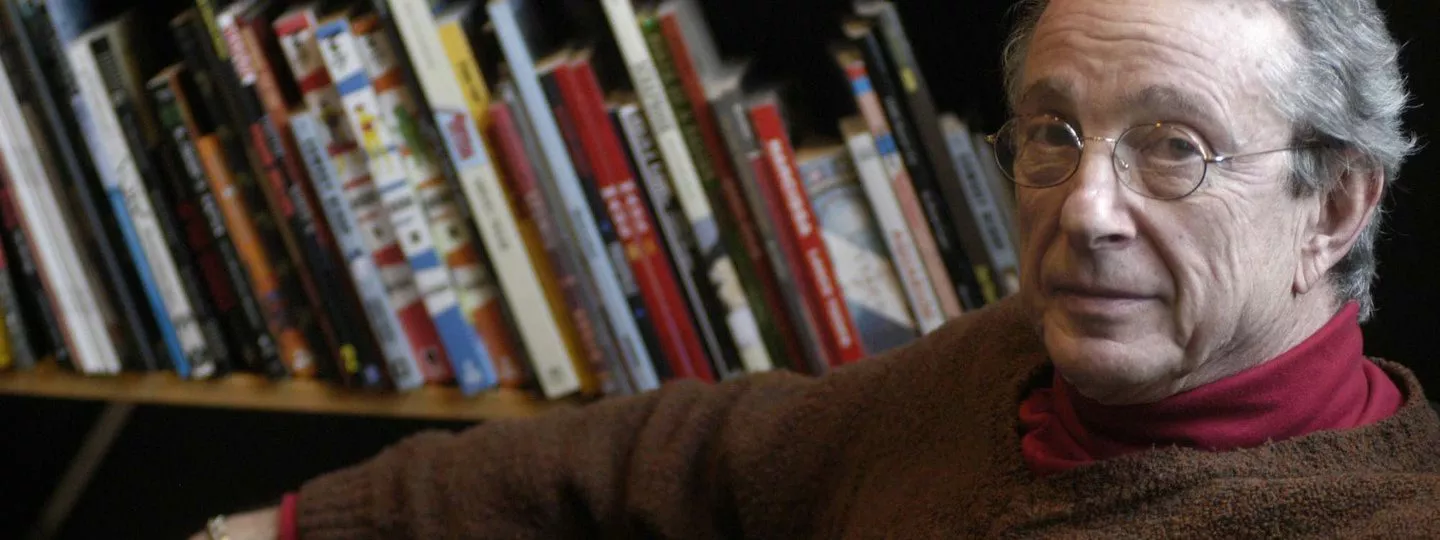
C. K. Williams
Charles Kenneth “C. K.” Williams (November 4, 1936 – September 20, 2015) was an American poet, critic and translator. Williams won nearly every major poetry award. Flesh and Blood won the National Book Critics Circle Award in 1987. Repair (1999) won the 2000 Pulitzer Prize for Poetry, was a National Book Award finalist and won the Los Angeles Times Book Prize. The Singing won the National Book Award, 2003 and in 2005 Williams received the Ruth Lilly Poetry Prize. The 2012 film Tar related aspects of Williams' life using his poetry.
Charles Kenneth “C. K.” Williams (November 4, 1936 – September 20, 2015) was an American poet, critic and translator. Williams won nearly every major poetry award. Flesh and Blood won the National Book Critics Circle Award in 1987. Repair (1999) won the 2000 Pulitzer Prize for Poetry, was a National Book Award finalist and won the Los Angeles Times Book Prize. The Singing won the National Book Award, 2003 and in 2005 Williams received the Ruth Lilly Poetry Prize. The 2012 film Tar related aspects of Williams' life using his poetry.
C. K. Williams grew up in Newark, New Jersey and graduated from Columbia High School in Maplewood. He later briefly attended Bucknell University and graduated from the University of Pennsylvania. While at Penn he studied with the romantic scholar, Morse Peckham, and spent a great deal of time in the circle of young architects who studied with and worked for the great architect Louis Kahn. In an essay, “Beginnings,” he acknowledged Kahn's dedication and patience as essential to his notion of the life of an artist.
Life
Williams lived for a period in Philadelphia, where he worked for a number of years as a part-time psychotherapist for adolescents and young adults, a ghost-writer and editor, then began teaching, first at the YM-YWHA in Philadelphia, then at several universities in Pennsylvania, Beaver College, Drexel, and Franklin and Marshall. He subsequently taught at many other universities, including Columbia, NYU, Boston University, the University of California, both at Irvine and Berkeley, before finally becoming a professor at George Mason University, then moving in 1995 to Princeton University.
He met his wife, Catherine Mauger, a French jeweler, in 1973, and they have a son who is now a noted painter, Jed Williams. He has a daughter from an earlier marriage, Jessie Williams Burns, who is a writer. He lived half the year near Princeton, and the rest in Normandy in France.
He was a member of the American Academy of Arts and Letters. Williams died of multiple myeloma on September 20, 2015 at his home in Hopewell, New Jersey.
Works
His first book, Lies, was published in 1969, and he had published many collections of poetry, culminating in his Collected Poems, of which Peter Campion wrote in The Boston Globe: "Throughout the five decades represented in his new Collected Poems, Williams has maintained the most sincere, and largest, ambitions. Like Yeats and Lowell before him, he writes from the borderland between private and public life….[His poems] join skeptical intelligence and emotional sincerity, in a way that dignifies all of our attempts to make sense of the world and of ourselves. C. K. Williams has set a new standard for American poetry."
Another collection, Wait, appeared in 2010, and another, Writers Writing Dying, came out in 2012.
He wrote a memoir, Misgivings, which appeared in 2000, a collection of essays, Poetry and Consciousness (1999), and a critical study of Walt Whitman, On Whitman (2010).
Williams was also an acclaimed translator, notably of Sophocles' Women of Trachis and Euripides' The Bacchae, as well as of the Polish poet Adam Zagajewski and the French poet Francis Ponge.
He also published several children's books.
References
Wikipedia—https://en.wikipedia.org/wiki/C._K._Williams


